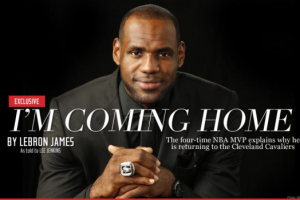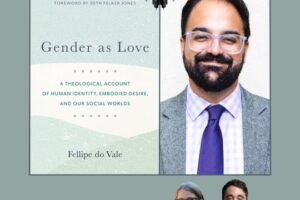Ten years ago this month (September) I first became a Calvinist. I’ve never discussed here at The Two Cities how I became a Calvinist so I thought I’d use this anniversary of sorts as an opportunity to reflect on that. It all happened at the beginning of my Sophomore year at BIOLA University. During my first year of college I was undeclared without any clear passion for any particular subject of study. The only thing I was totally committed to at BIOLA was the Utah/Mormon ministry on campus (now dubbed EMI: Evangelical & Mormon Interaction), which led me to spend my Interterm break, Spring break, and even my Summer in Utah (when I was a student at Brigham Young University). I would say that my passion for discussing faith and theology with Mormons was the biggest influence that led me to become a Bible major.
Until the start of the Fall Semester in 2006 I was an outspoken Arminian. Going into my Sophomore year after having declared to be a Bible Major, however, I was very concerned to make sure that I had an open mind to the Bible’s teaching. I felt like I needed to use this opportunity to learn from the Bible and not tell it what I think it can or cannot say. This was my posture. But getting to this point of being open minded was a Yuge move. I originally arrived at BIOLA as a cute little Arminian. I didn’t know that’s what my view was called, but I quickly realized how much I did not like Calvinism when I found out that many of my new friends held to it. I had an unconditional disdain brewing within me. It disturbed me so much that I actually thought that I had made the wrong choice to attend BIOLA. Of course, BIOLA is not known for Calvinism at all, but for me this was the first time I had been exposed to the wider-world of evangelicalism (of course, it’s not a very wide world at all, but when you grow up going to church at Calvary Chapels and attending a fundamentalist Baptist school there’s a lot that gets left out). I remember asking a Bible major friend at lunch during my first or second week on campus about his experience as a Bible major. I asked him if he could point to one major change in his views since studying the Bible intently here at BIOLA. He nodded, showing his understanding of the question, and said, “Yea, I’m definitely a Five Point Calvinist now.” There was probably nothing worse that this guy could have said—you became a Calvinist studying the Bible here?!?
Little did this guy know that I was perhaps the most annoying Arminian he would ever come across. I’d meet new people around campus and I’d quickly dive into it: Hi, I’m John; are you a Calvinist? It took me a while to get over it and to affirm that someone could be a Calvinist and a solid Christian. I had always viewed Calvinists as the bad guys. However, over the course of ministering to Mormons I found myself emphasizing God’s sovereignty more and more. Because Mormons emphasize “free agency” so much, I felt like I needed to emphasize the creator/creature distinction between God and man, the freedom of God over against the bondage of humanity to sin, and the radical grace of God that initiates salvation. None of these things necessitate Calvinism by any means, but I started to realize that the more I talked to Mormons the more I was refining my own theology. I felt like I had been putting limits on God and I was beginning to see how boundless he really is.
I did not take the leap, however, until I started my Theology II class in the Fall of 2006. Our professor, Dr. John McKinley, had assigned us a theology project in which we had to analyze all of the key texts in the salvation/election debate and provide our own statement on the subject. As part of my reading I was working through two chapters out of a book called Still Sovereign, which was edited by Tom Schreiner and Bruce Ware. The first chapter I read was the chapter on Romans 9 by Tom Schreiner. I read it with an open mind and felt like I was finally reading Romans 9 in a clear conscience. Even though I was so opposed to Calvinism, there was always an uneasiness within me regarding the way I approached that passage. I always felt like I was mishandling the text and making it say whatever made me feel more comfortable, anything other than what I felt that the text was pointing towards deep down. But after reading Schreiner’s essay I didn’t fully transform my theology. From there I moved on to another essay in that volume by D. A. Carson on John 6.37-44. This was the essay that finally did it for me. In that moment I found Calvinism irresistible. I could no longer fight it. I just remember being there in my dorm room sitting on my couch in nothing but my boxers. I felt as exposed and vulnerable before God as I physically was in my underwear. All of the sudden my own sense of autonomy and freedom evaporated and I felt like all I could do was worship God for his undeserved, unwarranted, unnecessary, and unexpected grace.
Perhaps it can be said that I never really developed into that Cage Stage Calvinist that we all know so well. I would say that I was Cage Stage as an Arminian and that becoming a Calvinist actually mellowed me out. Over the years at The Two Cities I’ve written about Calvinism a bit (e.g., why me being a Calvinist hardly matters and how TULIP can be helpfully understood to have an implicit narrative structure), and you can see from those posts that I do not regard this issue to be make or break. Over the years too, I’ve grown to find a lot of silliness in pop-Calvinism. Despite the manifold frustrations that I have felt over the years with a certain breed of Calvinist for their sloppy exegesis, caricatures of the perspectives of non-Calvinists, and odd cultural habits, nevertheless, I continue to persevere. Additionally, despite the fact that I do not believe that being a Calvinist supplants my identity as a Christian or is the most important thing about my Christian faith, I still affirm it and believe that it is a rich resource for me theologically and devotionally.





11 Comments
Leave your reply.